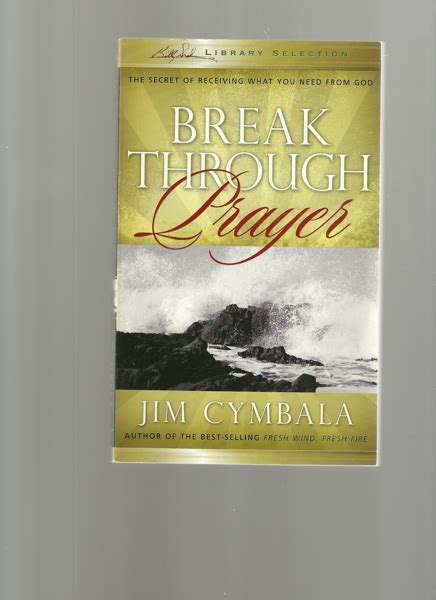A Quote by Georg C. Lichtenberg
I ceased in the year 1764 to believe that one can convince one’s opponents with arguments printed in books. It is not to do that, therefore, that I have taken up my pen, but merely so as to annoy them, and to bestow strength and courage on those on our own side, and to make it known to the others that they have not convinced us.
Related Quotes
The realization of our soul has its moral and its spiritual side. The moral side represents training of unselfishness, control of desire; the spiritual side represents sympathy and love. They should be taken together and never separated. The cultivation of the merely moral side of our nature leads us to the dark region of narrowness and hardness of heart, to the intolerant arrogance of goodness; and the cultivation of the merely spiritual side of our nature leads us to a still darker region of revelry in intemperance of imagination.
If we repeatedly read the Bible without the help of the Holy Spirit, it tends to reinforce our own prejudices and rock-hard doctrinal positions. We end up merely finding ammunition for what we already believe. We become so spiritually proud, so convinced of our own positions, that the Spirit is hindered in helping us to grow in the things of God.
The deeper we look, the more we shall be convinced that the one thing wanting, which we must strive to acquire before all others, is strength strength physical, strength mental, strength moral, but above all strength spiritual which is the one inexhaustible and imperishable source of all the others. If we have strength everything else will be added to us easily and naturally.
Emotional dependence is the opposite of emotional strength. It means needing to have others to survive, wanting others to "do it for us," and depending on others to give us our self-image, make our decisions, and take care of us financially. When we are emotionally dependent, we look to others for our happiness, our concept of "self," and our emotional well-being. Such vulnerability necessitates a search for and dependence on outer support for a sense of our own worth.
Most of this film, however, is about interpretation - are these people terrorists or freedom fighters? Are they good or bad? Is cutting timber good or bad? And I don't feel like the answers to those questions are simple, so we don't try to answer them for the audience. I wanted to elicit the strongest - and most heartfelt - arguments from the characters in the film and let those arguments bang up against the strongest arguments of their opponents.
All of us need an identity which unites us with our neighbours, our countrymen, those people who are subject to the same rules and the same laws as us, those people with whom we might one day have to fight side by side to protect our inheritance, those people with whom we will suffer when attacked, those people whose destinies are in some way tied up with our own.
A lot of times, candidates for office, especially incumbents, seem to get drawn into their opponents' arguments, and fighting on their turf, because you want to defend yourself. That's wrong. Fight on your own turf. Make them come to you. Make them explain why they don't agree with your position. I think that a lot of times, too many liberals, progressives, lose because they're afraid to really stand up for what they believe in.
I firmly believe that all we send into the lives of other does indeed come back into our own. I also believe that Christmas is that wondrous time of year when each of us renews our faith that a better world is possible. By trying to live Christmas 12 months a year, we CAN make this world a better place to live - for others and for ourselves.
Before making peace, war is necessary, and that war must be made with our self. Our worst enemy is our self: our faults, our weaknesses, our limitations. And our mind is such a traitor! What does it? It covers our faults even from our own eyes, and points out to us the reason for all our difficulties: others! So it constantly deludes us, keeping us unaware of the real enemy, and pushes us towards those others to fight them, showing them to us as our enemies.
As we make and keep commitments, even small commitments, we begin to establish an inner integrity that gives us the awareness of self-control and the courage and strength to accept more of the responsibility for our own lives. By making and keeping promises to ourselves and others, little by little, our honor becomes greater than our moods.
Befriending the life in others is sometimes a complex matter. There are times when we offer our strength and protection, but these are usually only temporary measures. The greatest blessing we offer others may be the belief we have in their struggle for freedom, the courage to support and accompany them as they determine for themselves the strength that will become their refuge and the foundation for their lives. I think it is especially important to believe in someone at a time when they cannot yet believe in themselves. Then your belief will become their lifeline.
There is the work of great men and there is the work of little men. Therefore it is said, 'Some labor with their minds and some labor with their strength. Those who labor with their minds govern others; those who labor with their strength are governed by others.'1 Those who are governed by others support them; those who govern them are supported by them. This is a universal principle.
I have come to know that adversity really means the things in life that challenge us and cause us to work with devotion and courage to overcome. I once stood on a street in Trondheim, Norway, looking up at a statue of a Viking. There came to my mind at that time a fable of the Norsemen that when a man won a victory over another, the strength of the conquered went over into his veins. Therefore, in this sense adversity is good, for it produces in us a source of strength as we learn to conquer our weaknesses.
Theologians talk about a prevenient grace that precedes grace itself and allows us to accept it. I think there must also be a prevenient courage that allows us to be brave - that is, to acknowledge that there is more beauty than our eyes can bear, that precious things have been put into our hands and to do nothing to honor them is to do great harm. And therefore, this courage allows us, as the old men said, to make ourselves useful. It allows us to be generous, which is another way of saying exactly the same thing.




































